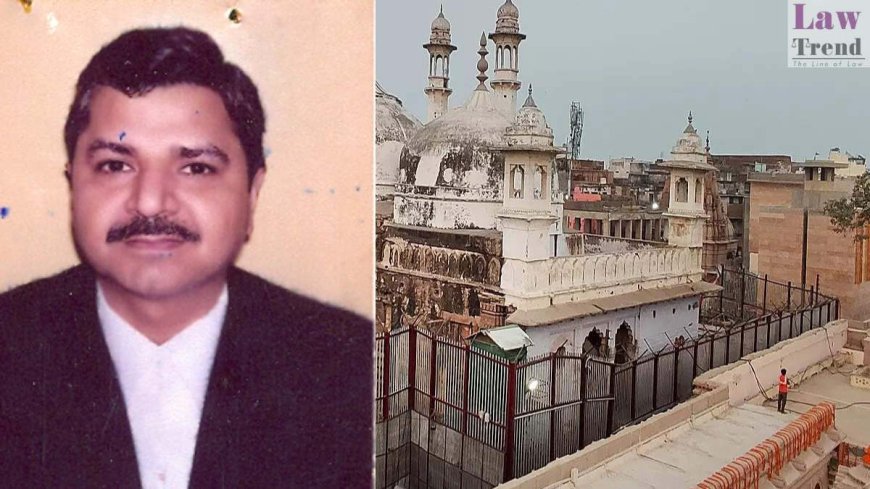Judge who permitted 'pooja' inside Gyanvapi Masjid appointed Lokpal of Lucknow varsity

JUDGE AK Vishvesha, who permitted the family of a late priest the right to resume 'pooja' in the southern cellar of the Gyanvapi Mosque after three decades, has now been appointed Lokpal of Dr Shakuntala Misra National Rehabilitation University, Lucknow.
AK Vishvesha passed the judgement on his last working day as a district judge on 31 January.
Dr Shakuntala Misra National Rehabilitation University in Lucknow is a varsity set up for the differently-abled segment (challenged students) of society. The varsity established by the Uttar Pradesh government has now appointed Retired Judge AK Vishvesha as an Ombudsman of the University, to look after students' concerns, for three years.
On 31 January, Retired district judge Vishwesha directed the District Administration to make appropriate arrangements within 7 days for Hindus to conduct worshipping rituals inside one of the sealed cellars, also called vyas ji ka tehkhana, of Gyanvapi Masjid.
The district court ruled that a Hindu priest could perform prayers before the idols in the southern cellar of the mosque. The prayers are now being conducted by a Hindu priest nominated by the Kashi Vishwanath temple trust and the petitioner, who has claimed that his grandfather offered puja in the cellar till December 1993.
The January 31 order of the district court was delivered on the plea of Shailendra Kumar Pathak, who had claimed that his maternal grandfather, priest Somnath Vyas, offered prayers in the cellar inside Gyanvapi Mosque till December 1993.
He had said puja was stopped during the tenure of then Uttar Pradesh chief minister Mulayam Singh Yadav after the Babri masjid in Ayodhya was demolished on December 6, 1992.
During the hearing, the Muslim side had contested the petitioner's version, saying no idols existed in the cellar and hence, there was no question of prayers being offered there till 1993.
A survey conducted by the Archaeological Survey of India (ASI) on Allahabad High Court's order had suggested that the Gyanvapi mosque was constructed during Mughal emperor Aurangzeb's rule over the remains of a Hindu temple.
